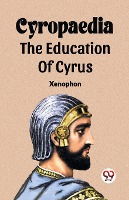"Cyropaedia: The Education of Cyrus" through Xenophon is an ancient Greek historic and philosophical paintings that offers a fictionalized account of the life and accomplishments of Cyrus the Great, the founder of the Persian Empire. The narrative, often taken into consideration a blend of biography and political treatise, focuses on the principles of leadership, governance, and the ethical schooling of a ruler. Xenophon takes the reader thru the existence of Cyrus, emphasizing his early life, education, and upward thrust to energy. The work is remarkable for its exploration of leadership qualities, ethical governance, and the connection between rulers and their subjects. As Cyrus establishes and expands his empire, the narrative presents insights into the author's ideas on an appropriate ruler, drawing parallels with the political context of historic Greece. "Cyropaedia" is a rich tapestry of historical fiction and philosophical musings, providing readers a window into the political philosophy of Xenophon. The textual content's enduring relevance lies in its exploration of leadership virtues, offering lessons that transcend the limits of time and culture.


